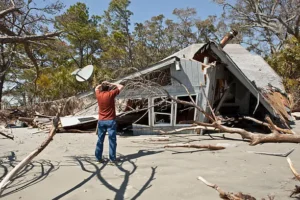Welcome to TX Insurance Appraiser, your trusted partner for navigating insurance claims and property appraisals across Houston and all of Texas. If you’ve come across the phrase “insurance loss reported” on a claim form, damage report, or policy notice, you’re not alone. This seemingly simple term plays a critical role in how your claim is handled, and ultimately, how much you’re paid.
It refers to the moment you formally notify your insurance company about a loss or damage you’ve experienced. Whether it’s a roof leak, fire damage, or vandalism, reporting the loss correctly is the first step toward recovery.
Understanding what “insurance loss reported” actually means can save you time, frustration, and possibly thousands of dollars.
Let’s break it down step by step, so you know what to expect, what to avoid, and how to take full control of your insurance claim.
What Does “Insurance Loss Reported” Mean?
In plain English, “insurance loss reported” means you’ve officially notified your insurance provider about a loss, damage, or incident that falls under your policy coverage. It’s more than just a heads-up, it’s the critical first step that puts your claim in motion.
This isn’t just a casual phone call to complain about a leaky roof or fire damage. It’s a formal notification that provides the insurer with essential information: what happened, when it happened, and how it impacted your property or business. This report gives the insurance company the green light to open a claim file, assign an adjuster, and begin the investigation process.
If you don’t report the loss, or report it incorrectly, you may jeopardize your entire claim. No report means no official claim, and no claim means no payout.
At TX Insurance Appraiser, we work with homeowners and business owners across Texas to ensure losses are reported accurately, clearly, and with the right supporting documentation. Doing it right protects your rights, your property, and your peace of mind.
Why Is Reporting an Insurance Loss So Important?
It kicks everything off. When you report a loss, you trigger the official claims process, opening a claim file and prompting the insurance company to begin its investigation. But this isn’t just administrative paperwork; it’s a crucial legal and financial step that sets the stage for everything that follows.
Timely reporting is essential for several reasons. First, it allows your insurer to assess the situation while evidence is fresh and damages are recent, which helps prevent disputes and delays. Second, it helps stop fraudulent claims, insurance companies can verify details early on to ensure the loss is valid. Most importantly, reporting the loss on time ensures you’re complying with your policy terms.
Failing to report a loss promptly can lead to a denied or delayed claim. In Texas, especially after major weather events, insurers are flooded with claims. If yours is late, it might get pushed to the back, or denied altogether.
Think of it like pressing the start button on a ticking clock. The sooner you report, the sooner an adjuster can assess the damage and TX Insurance Appraiser can step in to protect your rights and help you get the compensation you deserve.
Common Causes of Insurance Losses in Texas
We’ve worked with thousands of homeowners, property managers, and business owners across Texas, and certain types of insurance losses show up again and again. From unexpected disasters to everyday mishaps, here are the most common causes we see reported:
- Hailstorms and wind damage – Especially common in spring and summer, these events can wreck roofs, siding, windows, and vehicles.
- Hurricanes and flooding – Particularly devastating in Houston and Gulf Coast regions, storm surges and torrential rain often lead to costly property damage.
- Burst pipes and water leaks – Whether it’s a frozen line in North Texas or an unnoticed leak under a sink, water damage adds up fast.
- House fires – Electrical faults, cooking accidents, or lightning strikes can spark fires that destroy homes and belongings.
- Vandalism or theft – Both residential and commercial properties are at risk for intentional damage or stolen property.
- Equipment failures in commercial buildings – Malfunctioning HVAC systems, electrical panels, or machinery can lead to interrupted operations and lost revenue.
Each loss scenario requires specific documentation, expert evaluation, and accurate reporting. At TX Insurance Appraiser, we specialize in helping clients gather the right proof, present it clearly, and push the claim forward efficiently.
Types of Insurance Losses You Can Report

When it comes to insurance, not every policy is created equal, but most standard policies in Texas cover a wide range of loss types. Understanding what you can report is the first step in protecting your home, business, or investment property.
Here’s what most policies typically cover:
- Property Damage, Damage to buildings and personal belongings from covered events like hurricanes, hailstorms, or tornadoes.
- Fire and Smoke Damage, Includes direct fire damage and residual smoke effects, as well as water damage caused by extinguishing the fire.
- Water Intrusion, Issues like burst pipes, leaking appliances, and roof leaks caused by storms or fallen limbs.
- Liability Claims, If someone is injured on your property or if your actions cause damage to someone else’s, this type of coverage kicks in.
- Business Interruption, When a covered event like a fire or vandalism halts business operations, this coverage helps offset income loss and operating expenses.
Still not sure if your loss qualifies? That’s where TX Insurance Appraiser steps in. We don’t guess, we inspect, document, and clarify your coverage, ensuring you report every valid loss the right way, the first time.
When Should You Report an Insurance Loss?
Immediately. The moment you discover damage or experience a loss, don’t wait, report it to your insurance company right away. Timely reporting is not only a best practice, it’s often required under the terms of your policy.
Even if you’re unsure what exactly caused the damage, make the report. You don’t need to have all the answers upfront. In fact, making assumptions about the cause of loss can seriously hurt your claim. If you guess wrong, say it was “old plumbing” when it was actually storm-related, you might accidentally point your insurer to a non-covered reason.
Take this scenario: your ceiling collapses from water damage. Don’t guess it’s due to age. Instead, call TX Insurance Appraiser or a licensed leak detection company to investigate. Once you have a professional report, submit that documentation with your claim.
By being prompt, honest, and thorough, you protect your ability to recover. Reporting quickly also gives your insurer the chance to assess and mitigate any further damage. And with our help, you’ll ensure nothing is missed, miscommunicated, or misfiled. When in doubt, report and then call us. We’ll help you get it right.
How to Report an Insurance Loss
Reporting a loss isn’t complicated, but doing it right makes all the difference. Here’s the general process most Texas policyholders follow:
- Step 1: Contact your insurer’s claims department, by phone, online portal, or mobile app.
- Step 2: Share detailed information: what happened, when it occurred, where it happened, and the extent of the damage.
- Step 3: Provide supporting documentation such as photos, videos, police or incident reports, repair estimates, and witness information if applicable.
- Step 4: Keep copies of everything you submit, emails, claim numbers, documents, even names of who you spoke to.
Accuracy matters. Incomplete or vague information can lead to delays or denied claims. That’s why TX Insurance Appraiser works closely with clients in Houston and throughout Texas to prepare comprehensive, well-documented loss reports. We make sure your side of the story is clear, complete, and backed by evidence, so your insurer has no excuse to underpay.
What Happens After a Loss Is Reported?
Once you report a loss, your insurance company springs into action, but not always as smoothly as you’d hope. Here’s what typically happens:
- They open a claim file and assign a reference number.
- An adjuster is dispatched to investigate the loss, inspect damages, and collect documentation.
- The insurer reviews your policy to determine if the loss is covered and to what extent.
- If approved, a payment is issued, minus your deductible and any applicable limits.
While this may sound straightforward, the reality is often more complicated. Adjusters may miss key damages, undervalue repairs, or misinterpret policy language. That’s where TX Insurance Appraiser steps in. As your independent advocate, we provide impartial assessments based on thorough documentation and construction knowledge, your rights are protected, and you receive the maximum settlement you’re entitled to, not just what the insurer wants to pay. We’re here to level the playing field.
What Is an Insurance Loss Report?
An insurance loss report is the official document that records the details of a claim you’ve reported to your insurance provider. It’s a critical piece of the puzzle, and it follows your policy for years.
This report typically includes:
- The type of loss (e.g., fire, water damage, theft, or wind)
- The date and location of the incident
- An estimate of the damage or financial loss
- The amount paid by the insurer (if any)
- Relevant policyholder details and claim status
Think of it as your claim’s permanent record. Insurance companies use this document not only to process the current claim but also to evaluate risk in future policies. If the report is vague, missing info, or contains errors, it can delay your payout, or worse, lead to denial. That’s why TX Insurance Appraiser ensures every loss report is thorough, accurate, and built to protect you.
Who Uses Loss Reports, and Why?
Insurance loss reports aren’t just for your current claim, they play a major role in shaping how future claims and policies are handled. Several parties rely on them:
- Insurance Companies use them to evaluate your risk profile, determine coverage terms, and set your premiums.
- Policyholders refer to them to track their claim history and spot any discrepancies that might impact future rates.
- Homebuyers often review a property’s loss report to uncover past damage that might not be disclosed by the seller.
These reports are pulled from the CLUE database (Comprehensive Loss Underwriting Exchange), which stores claims data for up to 5–7 years. Even denied or unpaid claims can appear and influence future decisions.
At TX Insurance Appraiser, we help Texans review, manage, and correct their insurance loss history. A clean, accurate report can mean better rates, smoother claims, and fewer surprises down the road.
Frequently Asked Questions (FAQs)
It means you’ve officially informed your insurer about a loss or damage covered under your policy.
Report it as soon as possible, even if you’re unsure of the cause. Prompt reporting protects your claim rights.
Provide the date, location, cause of damage, photos, estimates, and any supporting documents.
The insurer opens a claim file, assigns an adjuster, investigates the loss, and determines if your policy covers it.
Yes. Even denied claims can appear in your CLUE loss report and may impact future policies.
Insurers use it to assess risk; buyers check it for property history; policyholders track their claim history.
You can request one free report per year through LexisNexis under federal law.
Absolutely. We help Texans document, report, and defend valid claims to ensure fair payouts.
Final Thoughts: Knowledge = Power
If you live in Texas, especially in storm-prone cities like Houston, knowing what “insurance loss reported” means is more than useful, it’s essential. One missed detail, one late report, or one vague description can derail your entire claim.
That’s where TX Insurance Appraiser comes in. We help policyholders like you take control of the claims process, from documentation to damage assessment to negotiation. We work for you, not the insurance company.
So if you’ve got damage, doubts, or just need clarity, give us a call. We’ll help you turn a confusing situation into a successful resolution. Because when it comes to your property and your peace of mind, there’s no room for guesswork.
Let’s get your claim moving. Contact TX Insurance Appraiser today.






